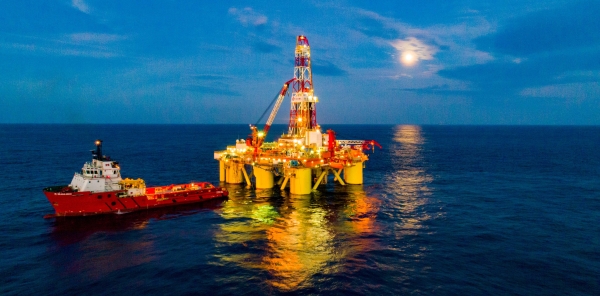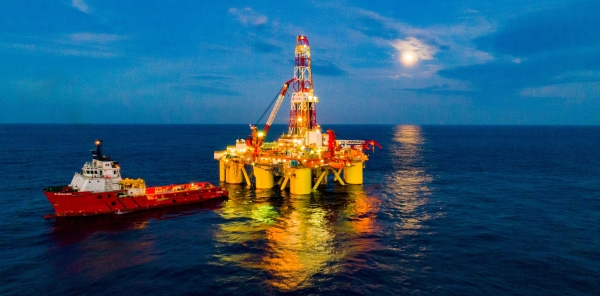Hydrogen energy will play an important role in the future energy system
来源: 时间: 2024-12-27
Hydrogen energy, as a clean, carbon-free, flexible, efficient, and rich in application scenarios secondary energy, has a wide range of sources. Hydrogen is an ideal interconnected medium that promotes the clean and efficient use of traditional fossil fuels and the large-scale development of renewable energy. Hydrogen energy is also the best choice for large-scale and deep decarbonization in transportation, industry, and building. The development of hydrogen energy can help solve the energy, resource and environmental crises, and it is an important starting point for improving the energy structure, achieving the goal of “carbon peaking” and “carbon neutrality”, and building a community with a shared future for mankind.
From a global perspective, hydrogen energy was first promoted to the height of national strategy, which can be traced back to the 1970s. The first oil crisis caused by the war in the Middle East made countries around the world deeply aware of the extreme importance of energy security and the urgency of improvement of energy structure. Developed countries such as Europe, the United States, and Japan have begun to deploy the hydrogen energy industry. They have achieved remarkable achievement by introducing supporting policies, laws and regulations, as well as vigorously promoting the research and development and the application of core technologies. Facing the rapid development momentum of global hydrogen energy and the huge opportunities contained in international cooperation, China, as the world's largest hydrogen producer and potential hydrogen energy consumer, has a certain foundation in fuel cell technology research and development, hydrogen energy infrastructure construction, and industrial supporting policies. With the country’s increasingly clear positioning of hydrogen energy, and the efforts of various local governments, enterprises, universities, and research institutes, China has gradually formed the pioneer areas such as Pearl River Delta, the Yangtze River Delta, the Beijing-Tianjin-Hebei region, and the surrounding Wuhan region. The period of great development of the hydrogen energy industry is coming.
1. Characteristics of Hydrogen
In a certain sense, it can be said that the energy revolution is an important foundation and driving force for the evolution of human civilization. The discovery and utilization of fossil energy has greatly increased labor productivity and promoted human beings from farming civilization to industrial civilization. The breakthrough and promotion of new energy technology has promoted the transformation of production methods and accelerated the transformation of mankind from industrial civilization to information civilization. Throughout the entire history of energy development, from firewood to coal, from oil to natural gas, and then to hydrogen, with the analysis of the chemical element composition of the main energy, a clear conclusion can be drawn: the use of energy has always followed the path of higher cleanliness and lower carbon content. In the future, zero-carbon energy is expected to become the main driving force for the leap-forward development of human civilization.
Hydrogen ranks the first in the periodic table and is one of the most widely distributed elements in nature. The elemental hydrogen formed by hydrogen atoms is known as the cleanest energy source. Under the same quality, the calorific value of hydrogen (in terms of low calorific value) is about 2.5 times that of natural gas and 2.7 times that of refined oil. Its high energy density and cleanness have significant advantages over other energy sources. However, elemental hydrogen cannot exist in nature for a long time due to its active chemical properties and extremely low density. It can only be produced as a secondary energy source and stored in a special way. Electricity is currently a widely used secondary energy source, so it is necessary to compare hydrogen and electricity (as shown in Table 1).
Table 1 Comparison of electricity and hydrogen
|
Item |
Electricity |
Hydrogen | |
|
Production |
Source |
Fossil energy, renewable energy, nuclear energy, etc. |
Fossil energy, renewable energy electrolysis, industrial by-products, etc. |
|
Cost(Yuan/kWh) |
0.20 ~ 0.55 |
0.27 ~ 1.5 | |
|
Storage |
Method |
Electrochemical energy storage, pumped storage, electrical energy storage, etc. |
Salt caverns, high-pressure hydrogen storage bottle/tank, liquid hydrogen storage (low temperature or organic matter), solid hydrogen storage |
|
Cost(Yuan/kWh) |
0.2 ~ 0.8 |
0.30 ~ 21 | |
|
Transportation |
Method |
Transmission line |
Tube bundle truck, liquid hydrogen tank truck, gas pipeline |
|
Cost(Yuan/kWh) |
0.02 ~ 0.16 |
0.036 ~ 0.42 | |
|
Application |
Building, industry, transportation, etc. |
Building, industry, transportation, etc. | |
It can be seen from the information in Table 1 that electricity has obvious economic advantages over hydrogen in terms of production, storage, transportation, and use. However, the main bottleneck restricting the development of electricity is storage. Although power storage technology has developed rapidly in recent years, and the cost of electrochemical energy storage has been decreasing year by year, the technology is limited by energy density and can only meet hourly energy storage response requirements, and it is difficult to meet the development needs in electrification of end-use energy in terms of storage capacity and economy. On the contrary, hydrogen, as an excellent energy storage medium, is one of the important means to solve large-scale energy storage problem. It can form a good synergistic development effect with renewable energy power generation. More importantly, hydrogen has material properties that electricity does not have. It can realize the mutual transformation between electricity, heat and gas. It is the only way to achieve large-scale collaborative optimization across energy networks in the foreseeable future. Therefore, hydrogen energy not only has a broad market space in the transportation field, but also will achieve large-scale development in the fields of distributed energy, green chemical industry, green metallurgy, and carbon dioxide hydrogenation.
2. The role of hydrogen energy in carbon neutral society
First, the development of hydrogen energy is an effective way to realize the replacement of clean energy and move towards the goal of achieving “carbon peaking” and “carbon neutrality”. At present, China is still in the energy pattern of "coal domination". In 2020, fossil energy accounts for 85% of primary energy consumption, coal accounts for about 58%, and clean energy accounts for only 15% of primary energy. Under the premise of the continuous growth of domestic economic and energy demand, the peaking of carbon emission in 2030 and the proposal of the carbon neutral target in 2060 (referred to as the "dual carbon" target) are major challenges to China’s energy structure adjustment and industrial transformation and upgrading. Carbon emissions from energy production and consumption are the key to achieving the goal of carbon neutrality for the whole society. As a secondary energy with a wide range of sources, clean, carbon-free, flexible, efficient, and rich in application scenarios, hydrogen energy is an ideal interconnected medium that promotes the clean and efficient use of traditional fossil fuels and supports the large-scale development of renewable energy. Hydrogen is the best choice for large-scale deep decarbonization in fields such as transportation, industry and building. The development and utilization of hydrogen energy has become an important strategic direction for the development of energy technology in all countries in the world, and it is also an inevitable choice for the evolution of China's energy structure to become low-carbon and even free of carbon. According to the forecast by many energy agencies, China's annual hydrogen demand will increase from about 22 million tons in 2019 to more than 100 million tons in 2060. Hydrogen energy accounts for more than 10% of the final energy and will contribute to China's carbon neutrality goal, about 20% of carbon dioxide emission reductions will be achieve through the deployment of hydrogen. The main energy status of hydrogen has become increasingly prominent.
Second, the development of hydrogen energy is an important cornerstone to support the efficient operation of the "new power system with new energy as the main body". In order to ensure the smooth realization of China’s “dual-carbon” goal, energy production, transportation, utilization and other parts of the chain must achieve the entire process of carbon reduction. Therefore, accelerating clean energy replacement is the most urgent and realistic task for a long time in the future. Although the installed capacity of renewable energy, represented by photovoltaics and wind power, has repeatedly hit new highs, the inherent randomness, intermittent, and seasonal characteristics of renewable energy have greatly reduced the flexibility of power supply and the quality of power. Therefore, in the new power system with high penetration rate of renewable energy, how to ensure the consumption of renewable energy is an unavoidable problem. With the breakthrough of proton exchange membrane electrolyzer technology, the compatibility of electrolyzed hydrogen production technology with fluctuating power input has been greatly improved, which will provide important technical support for the renewable energy power hydrogen production model. using hydrogen as a large-scale renewable energy carrier will become a reality. Hydrogen energy has a small energy loss during the energy storage process, and can be used as an energy storage medium and link in a high-permeability renewable energy power system. For example, when the power is redundant, the excess power is stored by hydrogen production through water electrolysis, and then the hydrogen is transported through natural gas pipelines mixing with natural gas or transported through dedicated hydrogen pipelines and other channels to the energy consumption end of industry, building, transportation, etc., so as to realize the interconnection of heat, electricity, and gas, and promote the construction of a multi-energy complementary smart energy system. According to CICC's calculations, China's annual demand for hydrogen energy from power system energy storage may reach 6.13 million tons by 2060, and the industrial scale is considerable.
Third, the development of hydrogen energy is a key part of realizing the substitution of oil and gas, ensuring the country's energy security, and enhancing the ability to independently guarantee energy supply. According to data from the National Bureau of Statistics, China's external dependence on energy has been increasing year by year. In 2020, the external dependence of oil and natural gas has reached 73% and 43%, respectively, and the issue of energy security has become increasingly severe. At present, China's oil consumption is mainly driven by transportation and industry. The transportation industry accounts for about 40% of oil consumption. Therefore, vigorously developing new industries such as new energy vehicles and general aviation will help solve the problem of China's energy dependence on foreign countries. The rapid iteration of fuel cell technology and hydrogen vehicle manufacturing technology will promote the effective penetration of hydrogen in the transportation field. Relying on its short refueling time, long cruising range, low temperature resistance and other advantages, hydrogen can cut into commercial vehicles, rail transit, ocean shipping, etc. In long-distance transportation industry, hydrogen can coordinate with electric vehicles, jointly promote my country's energy low-carbon transition, and ensure national energy security.
相关新闻:
相关图片:

相关附件:

